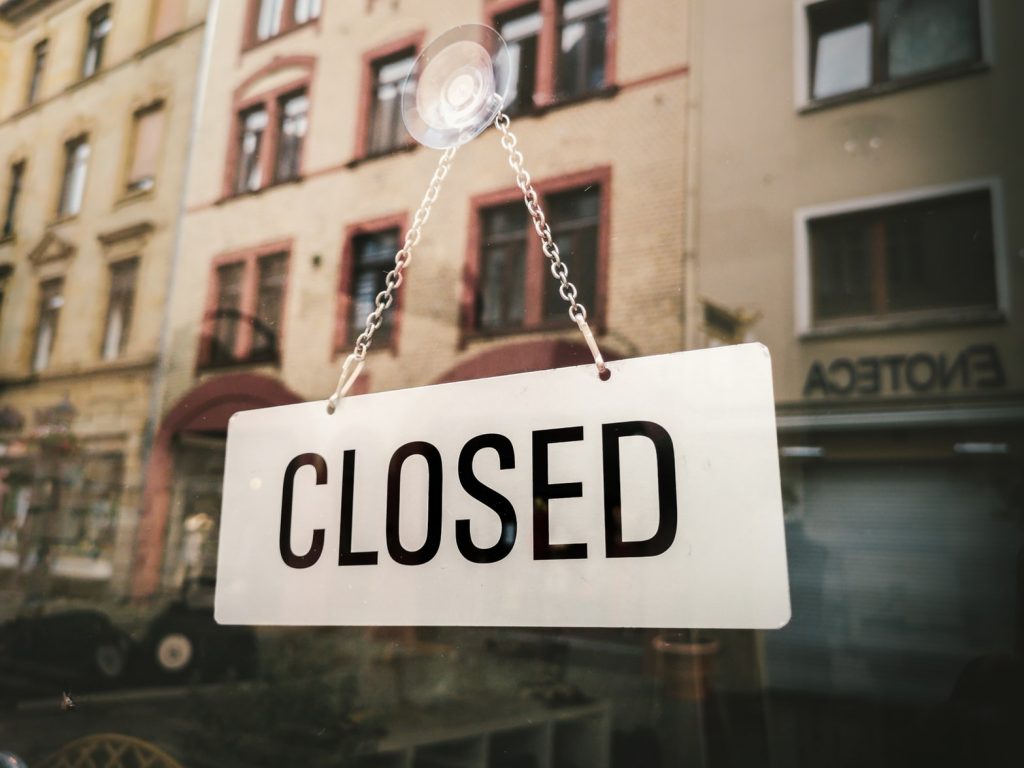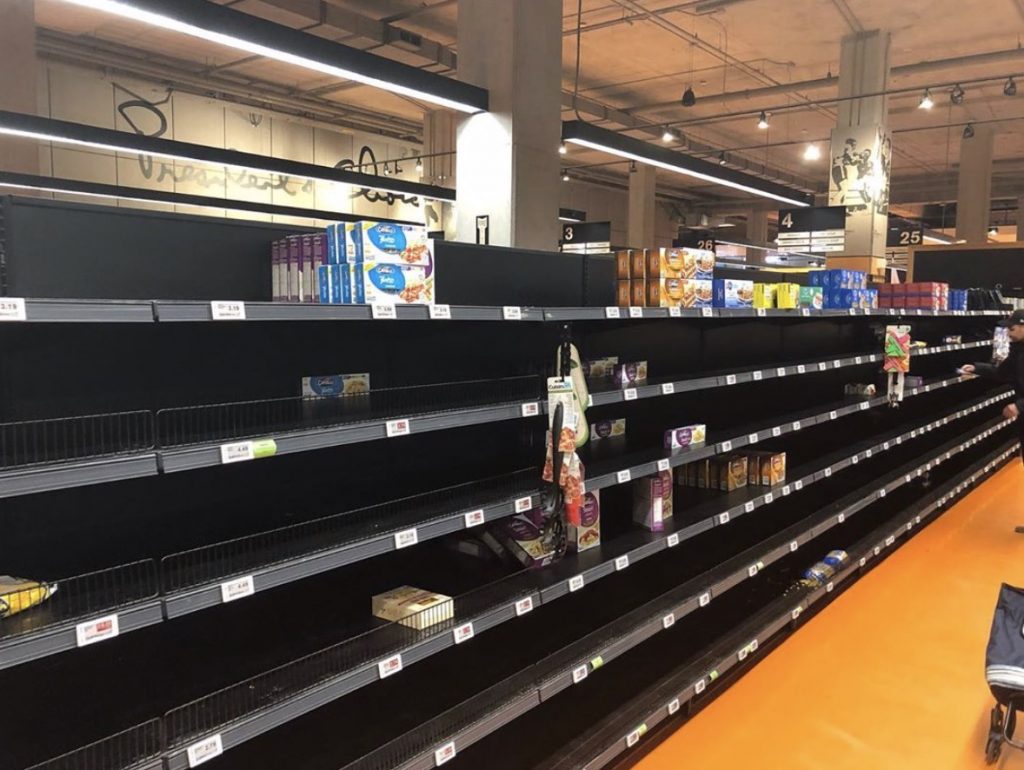Instead of gearing up for March Break shopping, mall staple stores Abercrombie and Fitch, Nike, Apple Store, Urban Outfitters, and Lush Cosmetics have all temporarily closed up shop in response to the COVID-19 (aka Coronavirus) pandemic.
Despite their bright and welcoming spring windows, their doors remained locked over the weekend, with letters informing would-be shoppers of their hiatus.
Lululemon and Aritzia announced yesterday they too would follow suit. Lululemon locations will remain closed until at least March 27, but will continue to pay employees for their hours during this time. Aritzia reps said stores would be closed until further notice, and that all online profits from sales during the shutdown will benefit the brand’s ‘Aritzia Community™ Relief Fund.’
Malls like CF Eaton Centre, Sherway Gardens, and Square One have shortened their hours.
While pretty much everything on the pandemic front remains more fluid and changing (and confusing) than ever, it doesn’t seem farfetched to wonder whether malls could very well take a cue from the stores they house and temporarily close up shop all together very soon.
COVID-19 is clearly leaving few industries immune to potentially devastating impacts, but for retail, the virus comes at a sensitive and challenging time for the industry.

We’re already at a time when we’re seeing once-beloved brands close the doors to their liquidated stores on the regular. While industry-dominating powerhouses like Aritzia and Lululemon will most likely be just fine, others may not be. Maybe they weren’t doing that great before the virus outbreak, frankly.
While it may seem like we’re in a middle of an apocalypse now, the aptly named ‘retail apocalypse’ has been a thing for a while, as retailers struggle to stay afloat in an era of increased competition and a surge in online shopping. Brands that rely on China – where COVID-19 originated – for production have particularly struggled as of late, as their product dwindles in stores due to Chinese virus-related restrictions in the manufacturing sector.
The supply chain for these retailers took a major hit long before the term “self-isolation” became a common one in the vocabulary of Canadians.
As Jim Danahy, CEO of retail consulting firm CustomerLAB told CBC last month, the supply chain impacts of COVID-19 will be felt harder than 2003’s SARS outbreak because Chinese manufacturing has quadrupled(!) since then. Yikes.
Everything from apparel brands and retailers of sports equipment, to big box North American retailers like Home Depot rely on China. In fact, Home Depot sources about 30 per cent of its products from the country. Of course, if Home Depot doesn’t have the supplies – and people don’t have the cash – in the wake of the outbreak, home renovations are going to be put on hold, an added blow for the home-improvement industry.
Naturally, COVID-19 has also affected food retail, with Chinese restaurants and fast food spots remaining virtually empty for weeks compared to their counterparts of different types of cuisine.

Today, Tim Horton’s announced that it would close the seating area in its restaurants across the country, offering only take-out, drive-thru, and delivery. The move comes after Starbucks announced it would close some of its stores and remove the chairs from seating areas in others, in an attempt to discourage coffee-drinkers from sticking around.
Especially in the midst of Italy’s ongoing lockdown, the fashion world’s luxury market has also taken a major blow with the closure of the country’s fashion and textile industry.
Apparently, setbacks could total $1 billion. Not only is Milan home to headquarters to labels like Versace, Armani, and Prada, other high-end brands like Louis Vuitton and Stella McCartney rely on now-shuttered Italian factories for the manufacture of product. Making matters worse are the many cancellations of orders of Italian textiles and products from foreign buyers around the world. Let’s not forget about the cancellations of countless fashion shows in cities around the world as of late. In fact, luxury stocks were hit the hardest by the initial outbreak.
On the other end of the spectrum, local businesses – many of who already struggle thanks to sky-high commercial rent prices or property tax – could see a major blow as well.
At press time, there has not been an official shutdown of independent retailers and restaurants by the Province, a growing number of local businesses are closing down shop voluntarily – whether out of a sense of personal responsibility, or potential shaming of running business as usual (just ask Lance Bass how that went for him and his restaurant Rocco’s).
Perhaps the biggest threat to retail, however, isn’t the availability of product at all, but rather the lack of dollars from would-be shoppers – individuals whose bank accounts may have taken a hit from COVID-19 for one reason or another.
There are more than a few headlines that warn of an impending global recession. But for the meantime, as retail outlets begin to reopen in China (including Apple), we can only hope that “business as usual” resumes safely and successfully when the time is right.
Articles You May Also Be Interested In:
The CN Tower Is Closing For A Month Due To COVID-19
The Spring One Of A Kind Show Will No Longer Be Happening This March
Costco Canada Is Ending Its Free Sample Program
The Running List Of Retailers Closing In Response To COVID-19
The 15 Best Online Canadian Shoe Stores To Shop
